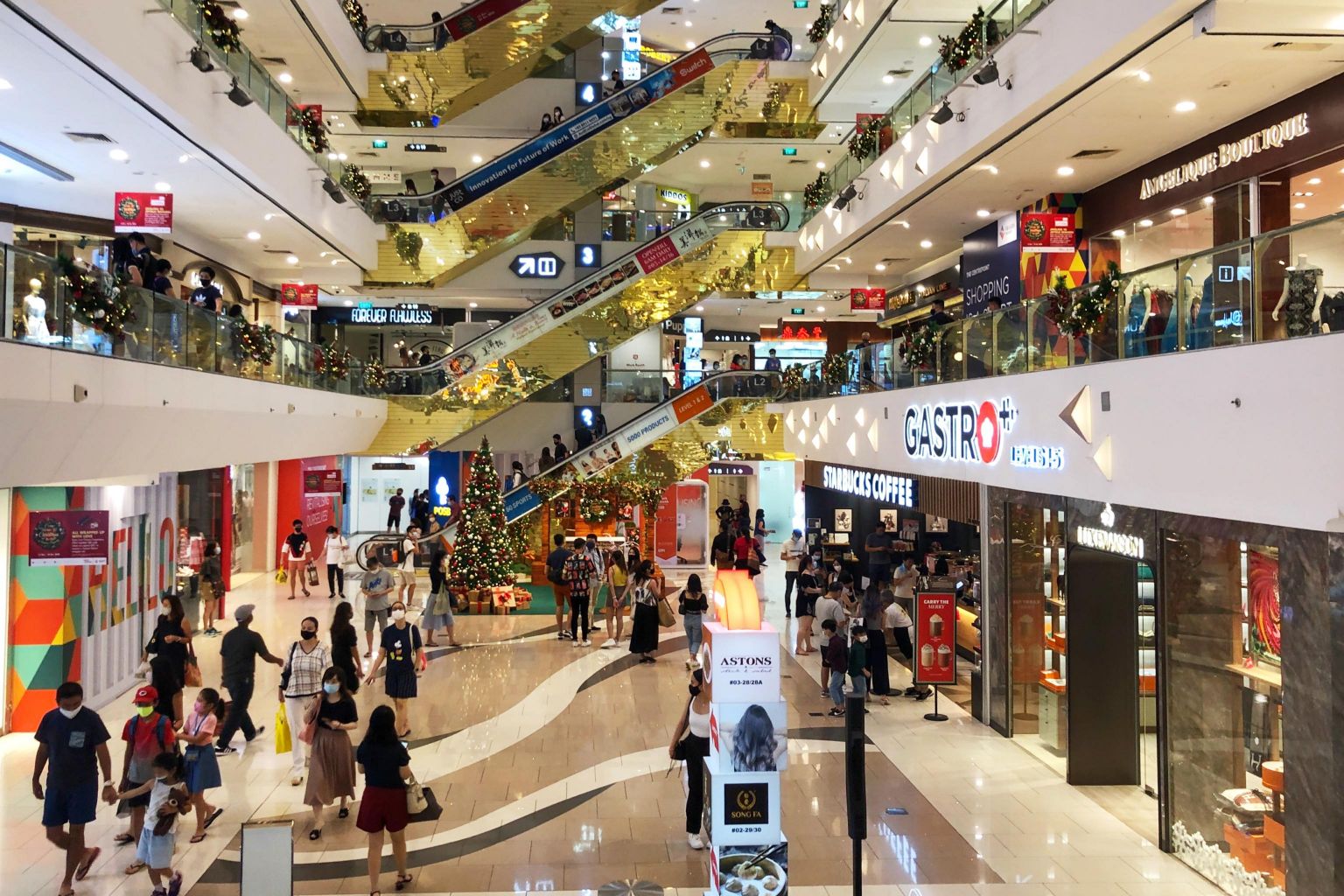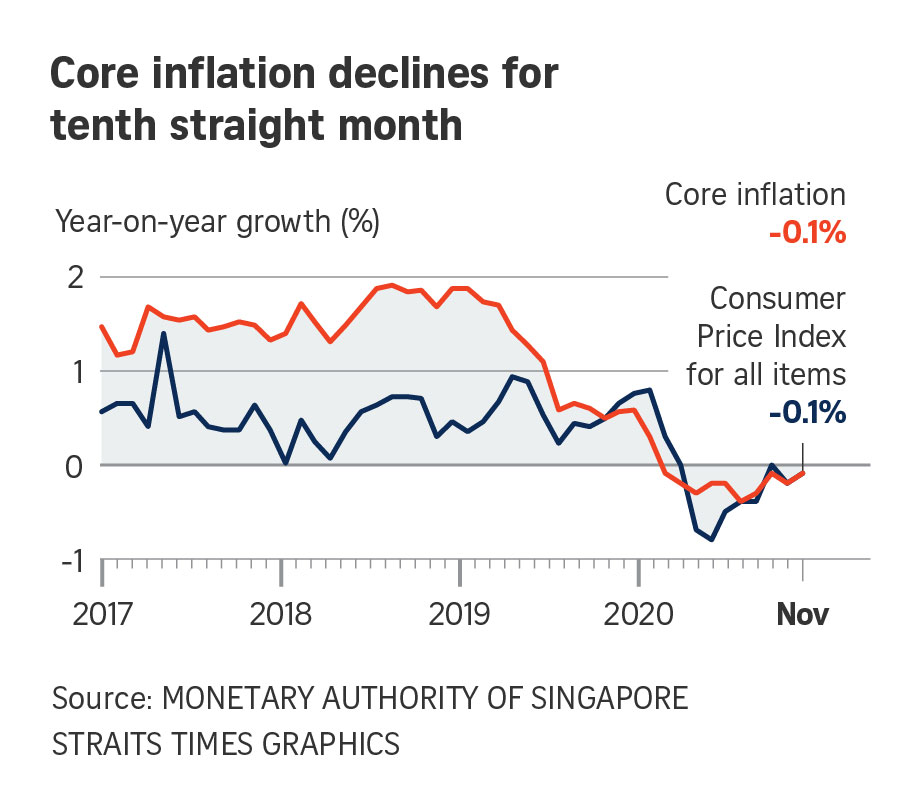Core consumer prices fall for 10th month
Sign up now: Get ST's newsletters delivered to your inbox

Core inflation has declined on a year-on-year basis for 10 straight months.
ST PHOTO: KELVIN CHNG
Core consumer prices fell for the tenth straight month in November amid a pandemic-induced economic downturn that weighed on domestic demand, although deflation eased slightly.
Core inflation, which excludes accommodation and private road transport costs, came in at minus 0.1 per cent year on year last month, slightly above the minus 0.2 per cent seen in October, said the Monetary Authority of Singapore (MAS) and Ministry of Trade and Industry (MTI) yesterday.
Market expectations for core inflation to be minus 0.1 per cent last month were right on the money, according to a median forecast of economists polled by Reuters.
The continued fall in prices is the longest since 1991, the earliest period for which such core inflation data is available on the Department of Statistics website.
Singapore's core prices previously fell for nine consecutive months in 2008 and 2009, during the global financial crisis.
UOB senior economist Alvin Liew said that while falling consumer prices may persist this month, pockets of inflation from food, communications and vehicle costs could continue to cushion the deflationary effects from other categories.
Overall inflation still negative but eases slightly
He added that demand for year-end local holidays may also lead to a temporary increase in demand for services and push up their services.
The long streak of falling prices came as no surprise. Ms Selena Ling, head of treasury research and strategy at OCBC Bank, said that during a recession, consumers cut back on spending, and firms may reduce prices to mitigate the fall in business, resulting in deflation.
Likewise, CIMB Private Banking economist Song Seng Wun said prices are tied to business and consumer sentiment. "If businesses are willing to hire and invest, wages will go up, which will lead to more spending."
But instead, Singapore has been seeing less spending and falling prices over the past 10 months.
Overall inflation rose to minus 0.1 per cent year on year last month, from minus 0.2 per cent the previous month.
The slower rate of decline in prices last month was mainly due to a smaller fall in the costs of services and electricity and gas, as well as higher food inflation.
Electricity and gas costs fell more modestly at 6.8 per cent, compared with the 7.2 per cent decline the previous month, as targeted utilities rebates ceased in October.

The cost of retail and other goods fell more sharply at 2 per cent, compared with a 1.6 per cent decline in October, due to a larger decline in clothing and footwear prices and a slower pace of increase in household durable costs.
Meanwhile, food inflation edged up 1.8 per cent last month compared with 1.7 per cent the previous month, mainly due to a steeper rise in the prices of non-cooked food and restaurant meals.
Accommodation inflation was unchanged at 0.3 per cent as housing rents rose at a pace similar to October's.
MAS and MTI said external inflation is likely to remain low in the quarters ahead amid weak demand conditions in key commodity markets and the continued spare capacity of Singapore's major trading partners.
Cost pressures are also expected to stay subdued locally, with the accumulated slack in the labour market dampening wages.
However, core inflation is forecast to turn "mildly positive" next year, with demand for some domestic services gradually picking up and the disinflationary effects of government subsidies introduced this year fading.
"Meanwhile, accommodation costs are expected to fall as rentals could soften, due in part to the decline in foreign employment," said MAS and MTI.
"In comparison, private transport costs should rise modestly amid an anticipated reduction in the supply of certificates of entitlement in 2021," they added.
MAS and MTI reiterated their core and overall inflation forecast of between minus 0.5 per cent and 0 per cent this year.
Core inflation is expected to average between 0 per cent and 1 per cent next year, while overall inflation is forecast to be between minus 0.5 and 0.5 per cent.
Barclays Bank economist Brian Tan said the bank maintains its full-year core inflation forecast of minus 0.1 per cent this year.
With core inflation likely to start rising again, he expects MAS to leave its policy settings unchanged at its next policy review in April.


